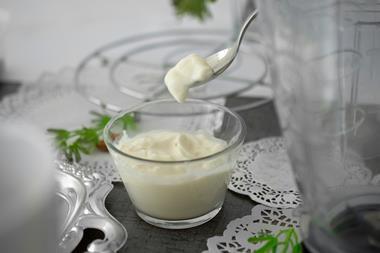There's a battle raging across the Channel that promises to be hard fought, with British cheese producers playing a card that has long been the trump of their French counterparts.
Interest in British artisan cheese is growing. Last year, sales were up 2.9% to £197m, double the rate of the category in general [TNS Worldpanel 52 w/e 9 September 2007].
This trend is proving a barrier to French cheeses trying to infiltrate the UK market. Rians' goats cheese business is a case in point.
"There has been phenomenal growth in British cheeses recently. Consumers are seeking out cheeses from the UK," says Sophie Charton Chemel, Rians' export development manager.
"That is causing some slowdown in terms of our planned expansion in the category, as we are more often than not losing out to Welsh goats cheese."
The company is positive, however, and has switched from promotion of its log cheeses (which compete directly with the Welsh offering) to pushing its Croton and Cabecou cheeses. It is also going for the convenience market with the launch of a ready-to-grill pack.
Other French manufacturers are looking to go head-to-head with niche products of their own. However, UK retailers don't seem willing to expand the customer base of smaller cheeses, says Jérôme Reigner, spokesman for French cheese exporter Entremont Alliance.
"For instance, Comté is the biggest AOC (appellation d'origine contrôlée - a kind of French version of Protected Designation of Origin) cheese in France. It is very much appreciated by British consumers, but who is going to take the risk to programme a different target for this cheese instead of the small niche it is in now?"
Reigner says Entremont's presence in the UK is "way below our potential", but he believes it will evolve this year. Talks are taking place with many UK multiples with a view to listing the brand.
One ambition is to compete with Président on Emmental sales with varieties including Omega-3, extra light and snack packs.
Emmental is a hard cheese that has been embraced by UK consumers, with sales last year up 14% to just over £11m. Brie and Camembert also grew to £33.8m (1%) and £9.2m (2%) respectively.
According to Sophie Wesse, brand manager at cheese specialist Bongrain, the volume growth comes from blue cheese, new hard cheeses and speciality cheeses. "As household penetration increases and consumer confidence grows, there is an increasing willingness to experiment with a wider variety of French cheeses," she adds.
Sally Budd, senior account manager at Fine Cheeses from France, agrees. She says interest in cheeses with clear origin is definitely an advantage for French products aiming to be a success on these shores.
"Over the past year many producers have adapted packaging to promote the regional origins of their cheeses and this is something we'll see more of," she adds.
Budd also sees opportunities in different areas of England. Currently, the main markets remain concentrated in the south, south east and London, but driving sales in the north will be the next challenge.
Another will be managing price rises in raw materials. Dairy prices have reached a three-year high, and last year's milk price rises are having an impact on the cost of cheese on both sides of the Channel.
"The price of milk has gone up in France," says Reigner. But in France, the impact was "postponed", which means French cheeses were rising in price later than Cheddar, for instance.
"On top of that, you have Euro-
versus-pound evolution since the end of last year, which does not help, so price increases in pounds are continuing this year," he adds.
French cheesemakers are facing a number of obstacles but the cushion of strong growth last year and their skill in marketing provenance sets them up to give British cheeses a run for their money.
But given that UK consumers eat 30g of cheese each a day on average, there may even be room for plenty of growth for both countries.n

















No comments yet